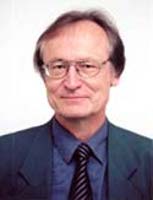Jürgen Schriewer has been Professor and Head of the Comparative Education Centre at Humboldt University, Berlin, since 1991, perhaps the pre-eminent centre for comparative educational research in continental Europe. Once a student of Romance and German Philology, Philosophy and Education at the Universities of Bonn (Germany), Lille (France), and Würzburg (Germany), Schriewer earned his doctoral degree, in 1972, with a thesis on twentieth-century university reforms in France. He was appointed Professor of Comparative Education at the University of Frankfurt, in 1975, where he would stay until 1991, when, after the fall of the Berlin Wall, he was invited to help reconstruct Humboldt University, traditionally one of the foremost centres of learning in the Western world and a model of the modern research university.
Throughout his career, he has held a number of key positions in the field of comparative education globally, including the Presidency of the Comparative Education Society in Europe (1992-1996), the Chair of the Standing Research Committee of the World Council of Comparative Education Societies (1996-2002), and membership in the Editorial Board of Comparative Education. He has continuously served as an expert to Advisory Boards and Research Foundations, both in Germany and internationally, and continues to serve as an Advisory Editor of major European, US, and Latin American journals specializing in comparative education and educational research more generally. These multiple affiliations reflect both his academic fluency in French, English, and Spanish (in addition to native German), as well as a long career of visiting positions at distinguished universities worldwide such as Université de Paris V-René Descartes, Stockholm University, Waseda University (Tokyo), Universidad Nacional Autónoma de Mexico, and Universidad de San Andrés (Buenos Aires) among others.
Schriewer's contributions to the field of comparative education are multiple and complex, but perhaps revolve around a vision of comparative education as a highly academic, theoretically robust, and historically focused endeavour. His main areas of research include (i) the comparative-historical study of education, including Education as an academic discipline; (ii) the theory of comparative enquiry in education and the social sciences, analyzed less in terms of methodological prescription, but from the vantage point of the history of science and the sociology of knowledge; (iii) the virtually dialectical intertwining of an emerging world-culture and culture-specific structural elaboration and re-diversification processes. Along these lines, he offers a vision of the field as an heir to and elaborator of the legacy of the great social theorists of the European tradition who worked theoretically, conceptually, and methodologically in similar ways (Durkheim, Weber, Eisenstadt, and Luhmann among others). As such, he has worked to bridge theory and method in comparative education, to reconcile historical reconstructions of education with comparative analyses, and to empirically elaborate the ways in which contextual specificities modify, translate, and interpenetrate with 'external' phenomena, providing a clear, coherent program for comparative educational research, past and present. In recent years, this has taken the form of large comparative projects carried out by coordinating a core group of young scholars working on Western Europe, Latin America, and South and East Asia, respectively, to examine the ways in which seemingly unitary educational phenomena are understood, translated, and refashioned in accordance with the particular 'socio-logic' of recipient contexts, despite the façade of homogeneity and standardization.
This approach has brought Schriewer into direct conversation with the flourishing neo-institutionalist (World Culture) theoretical perspective pioneered by John W. Meyer and Francisco O. Ramirez. For more than a decade now, Schriewer has provided – in line with his vision of comparative education sketched above – a counter-weight of sorts to the neo-institutionalist vision of trans-national flows leading to increased homogeneity founded on shared norms and values. Instead, his work shows that global 'imports' are received in highly specific, often unexpected ways; always refracted by specific historical, cultural, political, and intellectual configurations. The result is not a smooth world of shared meaning, but the persistence of 'multiple worlds' and thus a fascinating puzzle and research program that returns the field to its contextual, historical, and academic roots: a major contribution in and of itself, as comparative education globally constantly moves closer to mere 'policy relevance' and thus increasingly lacks a vision of what it once meant and should still mean to 'do' comparative education.
In consideration of his research achievements and publications (translated into multiple languages), Schriewer was awarded outstanding international academic distinctions, such as the Japanese Research Award by the Japan Society for the Promotion of Science (2000) and the Tenth Swedish Research Award of The Bank of Sweden Tercentenary Foundation (2001).
